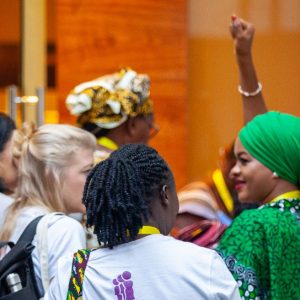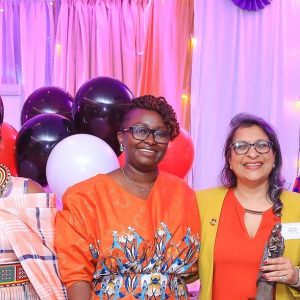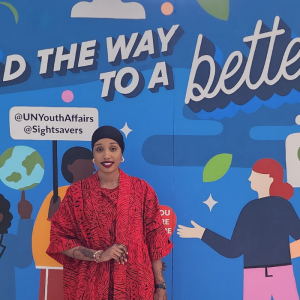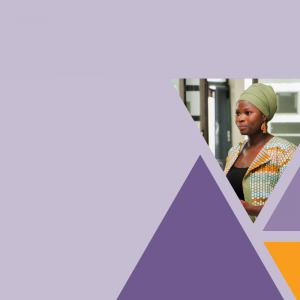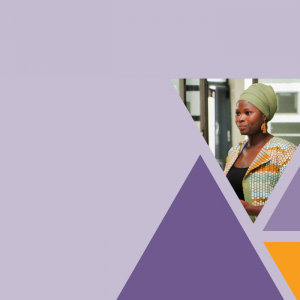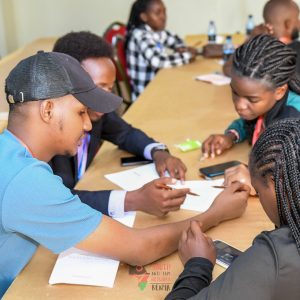New animation on female genital cutting released – Aissata’s true story
UNFPA Executive Director, Dr Natalia Kanem- “Aissata’s story tells us that with community engagement, greater political will and targeted investments, we can change social norms and
save girls’ lives. Let’s quickly step up our efforts to make good on our collective pledge to end FGM decisively by 2030!”
Kajta Iversen, CEO and President of Women Deliver – “What has been achieved by Aissata’s village and thousands of others can inspire change in communities all over the world, to make FGM and other forms of gender based violence a thing of the past.”
This is the true story of Aissata, an activist and changemaker from Northern Senegal who underwent female genital cutting (FGC) when she was just seven years old. Like a growing number of communities around the world, Aissata’s village went on to make the historic decision to abandon FGC.
Her story has now been turned into an animation and accompanying comic, released for the International Day of the Girl Child 2018 and made in collaboration between Orchid Project, Tostan, and ethnographic comic creators and non-profit PositiveNegatives.
When we met Aissata in a village in Northern Senegal in May 2018, she told us how FGC had affected her and the girls and women in her community. Some of the consequences included haemorrhage, school absences, then difficulties around sex and childbirth. Her story tells us why communities practice FGC, and why this complex issue is still ongoing in 45 countries on 6 continents around the world.
Aissata’s story also shares the powerful journey of how, through learning about human rights and responsibilities, her community chose to abandon FGC. Her village joined the thousands around the world making this historic decision.
Together with our partners we are illuminating Aissata’s story to share the potential for FGC to end around the world.
Over 8,000 communities have made public declarations of abandonment through the work of Tostan in West Africa. UNFPA and UNICEF state that 31.5 million individuals in over 21,700 communities have made public declarations on the abandonment of FGC globally.
With your help, this powerful momentum can spread globally. Please share, act and discuss, so Aissata’s story can inspire even more change around the world.
Share
There are several ways you can amplify Aissata’s story. Please share on Twitter, Facebook, LinkedIn or send via email to people in your network.
You can also download our sharing toolkit for suggested posts and shareable images.
We’d be delighted for Aissata’s story to be shown at events and in different venues around the world, from community dialogues at the grassroots, to fundraisers, to international gatherings.
You can show the animation in English, French or Swahili via YouTube or, to receive the original files, please contact miranda@orchidproject.org.
Act
Aissata’s story is a testament to the fact that FGC can end. A lot has already been achieved by changemakers like Aissata and grassroots organisations like Tostan and Orchid Project’s other partners around the world, but there is still much to accomplish.
Orchid Project has a vision of a world free from FGC and it is our mission to foster and accelerate abandonment of FGC around the world. We achieve this by partnering with organisations that deliver a sustainable, proven end to FGC; sharing knowledge and the potential to end the practice within a generation; and advocating to ensure that stakeholders prioritise and resource an end to FGC.
This work would not be possible without the generosity of our supporters. With your help, we are working to reach even more communities in Senegal, Kenya, India, Somaliland, Tanzania, and beyond.
Act now. Donate today, and help us accelerate an end to FGC around the world.
Discuss
Aissata’s village and many like hers across West Africa reached their decision to end FGC through a process of learning about human rights and responsibilities, and through open, non-judgemental discussion about the practice and issues around it.
To accompany this inspiring animation, we have created a comic that has also been translated into Swahili and French. It is intended for use as a resource that tells the story of what FGC is, what its consequences are, and how it can end.
This comic can be used online or printed to prompt discussions and to further amplify the hope that FGC can end around the world.
If you are in the UK and are worried that a child may be at risk of FGC, contact the NSPCC anonymously on their 24 hour helpline on 0800 028 3550 or email fgmhelp@nspcc.org.uk.




